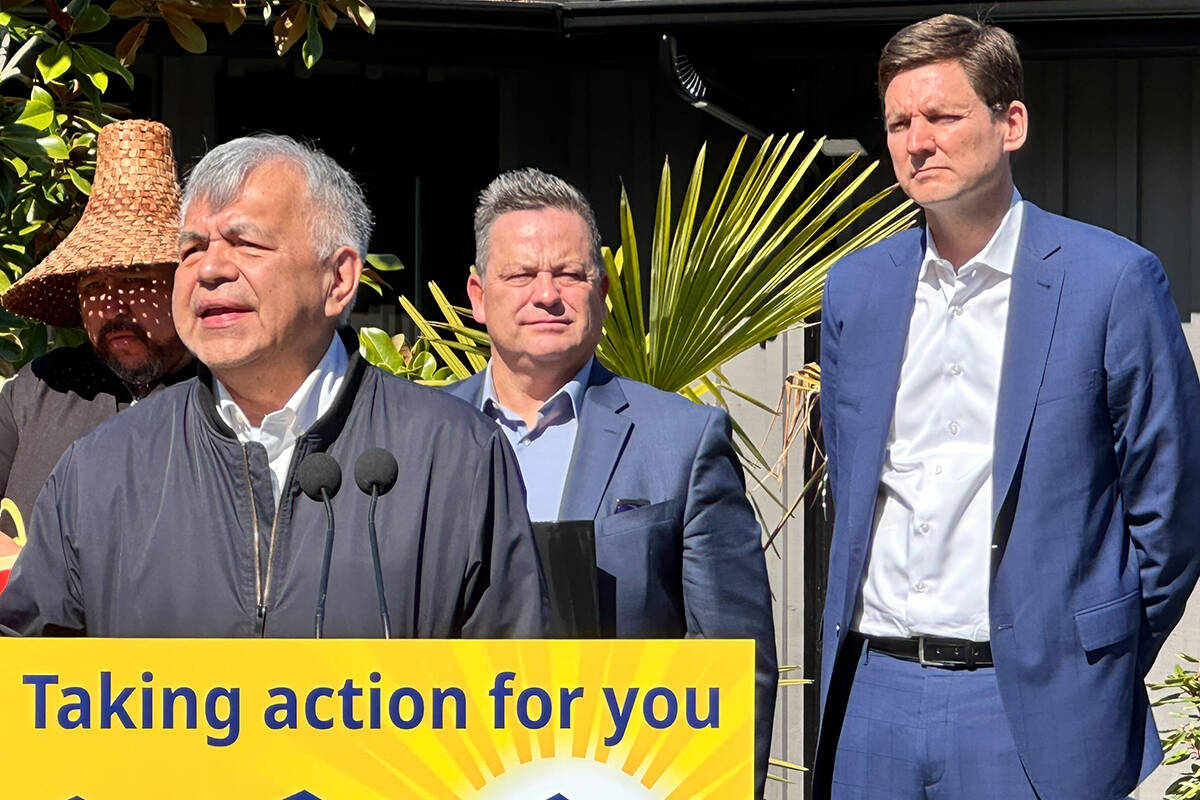A wellness centre on Snaw-Naw-As territory will be the first of its kind in B.C., offering detox services specifically for Indigenous youths.
B.C. Premier David Eby and B.C. Minister of Mental Health and Addictions Jennifer Whiteside were at the Orca Lelum Youth Wellness Centre on Tuesday, April 9, to announce $7.1 million for initial funding for the service, part of a previously announced $171-million provincial budget investment in Indigenous-led treatment and recovery services. Island Health is supporting the centre with an additional $1 million.
Eby said in a press release that the toxic drug crisis is disproportionately affecting Indigenous people.
“Rooting treatment for addictions and mental health issues in Indigenous knowledge has the power to transform a young person’s life,” he said. “Orca Lelum Youth Wellness Centre will provide that support, and our government is proud to support such an innovative approach to help vulnerable youths.”
The on-reserve centre will provide 20 substance-use treatment beds that offer culturally informed care to Indigenous youths aged 12 to 18 years, noted the press release. Services will begin in phases, starting this June, and the centre is expected to operating at full capacity this fall.
Robina Thomas, Orca Lelum Society board chairperson, elaborated to the News Bulletin on what “culturally informed” means.
“You wouldn’t just come here and treat addiction,” she said. “You would consider residential school, the child welfare system, murdered and missing women, the impact that might have on family. I don’t think there would be one Indigenous person here today who hasn’t lost someone to addiction and so it’s understanding grief and the impact of grief.”
Thomas also elaborated on cultural elements, pointing to a meeting room at the facility influenced by a big house, where mornings might start with a prayer circle.
“Reminding people about our teachings, being connected to the land, that will be a part of it … there’s a whole component of spiritual, emotional, physical, mental, the four aspects of someone we’ll be taking care of while they’re here,” she said.
According to the B.C. government, First Nations people are almost six times more likely to die from drug poisonings than other B.C. residents. The government previously announced a Foundry centre for Nanaimo offering service for people between 12 to 24 years with mental health and addiction issues. There was no news on when the centre might open, but Whiteside told the News Bulletin the two would be aligned.
“I think what’s important about this facility and the work that Island Health is doing and our partners with the Foundry are doing, is that there will be a lot of integration and co-ordination between different service providers who are providing care for children in need,” the minister said.
Bill Yoachim, Kw’umut Lelum executive director, said Orca Lelum society is an individual organization, but under his organization’s umbrella and will help youths of all Indigenous nations.
“Obviously our primary target will be Indigenous youth in the [area], but if beds are open we’re not going to turn down youths,” he said.
Richard Jock, CEO of the First Nation Health Authority, said in the release that there’s a need for more mental health and addictions services and support, and said the Orca Lelum wellness centre “will help to reach a historically under-served population and bring us a step closer to our shared goals of achieving meaningful reconciliation and getting First Nations People in B.C. the culturally safe care they need, when and where they need it.”
READ ALSO: B.C. budget status quo for mental health and addictions services
READ ALSO: A dozen more addiction centres coming for youths in B.C.

